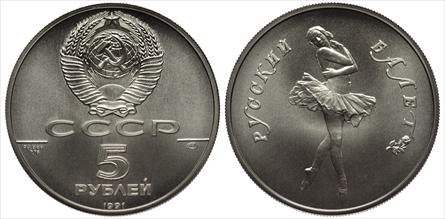Understanding the Tarnish Resistance of Palladium Coins
Most precious metals tarnish due to exposure to moisture and air. However, some coins are resistant to tarnishing even when they’re exposed to potentially dangerous materials, and this includes palladium coins. These coins come with a variety of benefits, such as diversifying your portfolio and protecting you from market fluctuations, but the resistance to tarnishing is what many buyers and sellers appreciate the most. Below, the precious metals experts from First National Bullion, the best place to buy gold in Scottsdale, explain why palladium coins resist tarnishing and offer tips to prevent any potential mishaps.
Rusting vs. Tarnishing
While certain coins remain untarnished, others can rust. Even though tarnish and rust are both forms of corrosion, they affect precious metals in different ways. Elements surrounding the coins can lead to tarnishing, which causes discoloration on their surfaces. In contrast, rust corrodes metals such as iron and its alloys due to negative reactions with water, oxygen, and other metals.
Rust can eat away at precious metals. When this happens, structural damage will increase over time. However, the durable oxide and wax coating often applied to palladium can inhibit rust and make these coins an even better investment option.
Durability
Palladium is a rare silver-white metal that doesn’t tarnish because it doesn’t react to oxygen, making palladium coins extremely durable. Despite being softer than some precious metals, palladium is much harder than most, including gold, providing it with more protection when it comes to tarnishing or denting. Their durability also prevents these coins from breaking down as quickly as others, such as those made of platinum.
Exposure to Acids
Although palladium coins are resistant to tarnishing, the precious metal does come with some weaknesses. Strong acids could cause issues for your coins, which is why you should use hydrogen peroxide when cleaning them. Handling palladium coins safely during cleaning prevents exposure to harmful household cleaners. When washing your coins, handle them with clean hands or gloves. Always allow palladium coins to soak for at least 24 hours before rinsing them with water and drying each one gently with a dry cloth.
Preventative Tips
While palladium coins rarely tarnish, it’s still advisable to know how to address potential issues with rust or tarnish. The most effective preventive step is to store the valuable metal in a dry, cool area shielded from sunlight and humidity. When storing the coins in containers, choose holders that ensure minimal air exposure and limited contact with environmental elements.
Whether they’re veteran palladium collectors or new investors looking to buy gold bars, folks should reach out to the experts at First National Bullion. We offer a huge selection of palladium, gold, platinum, and silver items. Scottsdale collectors who are looking for the finest-quality coins, bars, and bullion should give us a call today to speak with one of our precious metals experts.
The statements made in this blog are opinions, and past performance is not indicative of future returns. Precious metals, like all investments, carry risk. Precious metals and coins may appreciate, depreciate, or stay the same in cash value depending on a variety of factors. First National Bullion does not guarantee, and its website and employees make no representation, that any metals for sale will appreciate sufficiently to earn the customers a profit. The decision to buy, sell, or borrow precious metals and which precious metals to purchase, borrow, or sell are made at the customer’s sole discretion.


